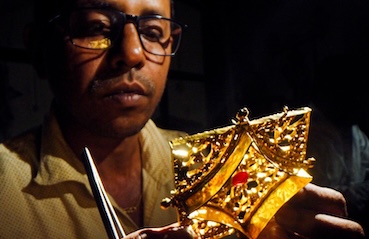Published: 05 Sep 2017
Unexpected gold: in the oceans

For centuries, man has excavated and mined the surface of our planet in search of gold, an effort that has seen humans amass 173,000 metric tonnes of the precious metal to date. As global demand reaches its peak, our endeavors in search of gold could literally take us into much deeper waters; specifically, the oceans.
You see, the estimated total worth of gold in our oceans is close to $150 trillion. That would mean, if split up equally, every human being on the planet could own 4.5kgs of gold, according to National Geographic. Doesn't that sound exciting?
Gold exists both as deposits in the rocks on the seafloor, and as tiny trace amounts dissolved in the water. The gold in ocean water is extremely dilute and is present in concentrations of a few parts per trillion. To put this into perspective, 1 liter of seawater contains 1/13-billionth of a gram of gold, or in other words, we need 13 billion liters of seawater to produce 1g of gold. If you’re thinking that’s a lot of water for 1g of gold, then you’re right. In fact, not having an economical means of extracting this gold is one of the primary reasons that the gold rush hasn’t ducked below surface of our oceans, but that’s not to say we haven't tried.
German based scientist Fritz Haber had suggested using giant centrifuges to separate the gold from the water to pay for giant bill that was handed to them at the end of World War I. However, the energy required to run the centrifuges and the sheer volume of seawater that needs to be processed through the centrifuges, make this approach highly impractical and economically infeasible.
Another scientist, Joy Prakash Agarwal, of Chennai, India proposed that gold could be extracted using an immobilized liquid membrane (ILM). Agarwal said that his process would extract gold at half the cost of current solutions, which attracted great attention from the Indian Government.
Maybe the most famous modern case of someone claiming to get gold from the sea is that of biomedical engineer and inventor Mark Sullivan, who designed and presented an engine – on the famous American TV show Shark Tank – that claimed to use the planet’s Coriolis Effect to produce energy. As a byproduct, his oceanic turbines would end up filtering gold from the seawater.
The possibility of extracting gold from oceans is only expected to increase, as more researchers, scientists and Governments fathom the value hidden deep within.











